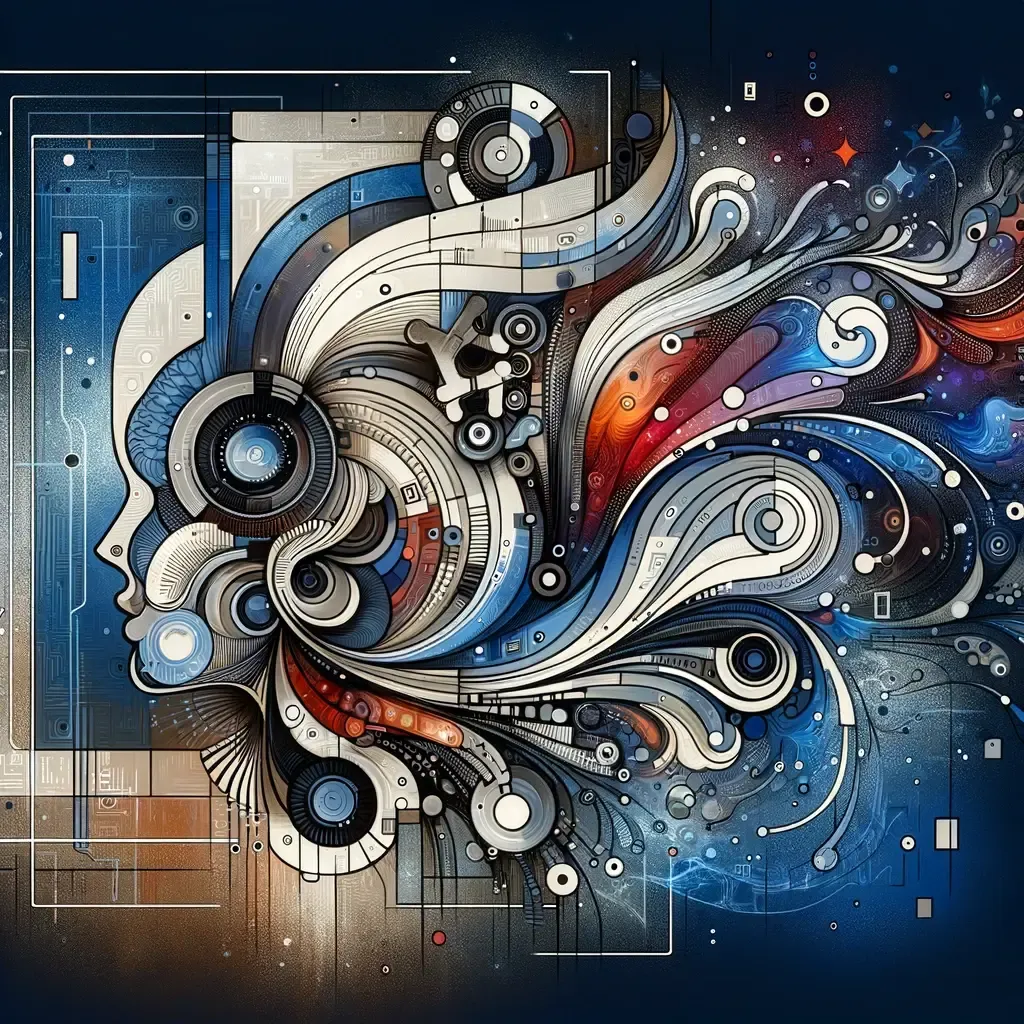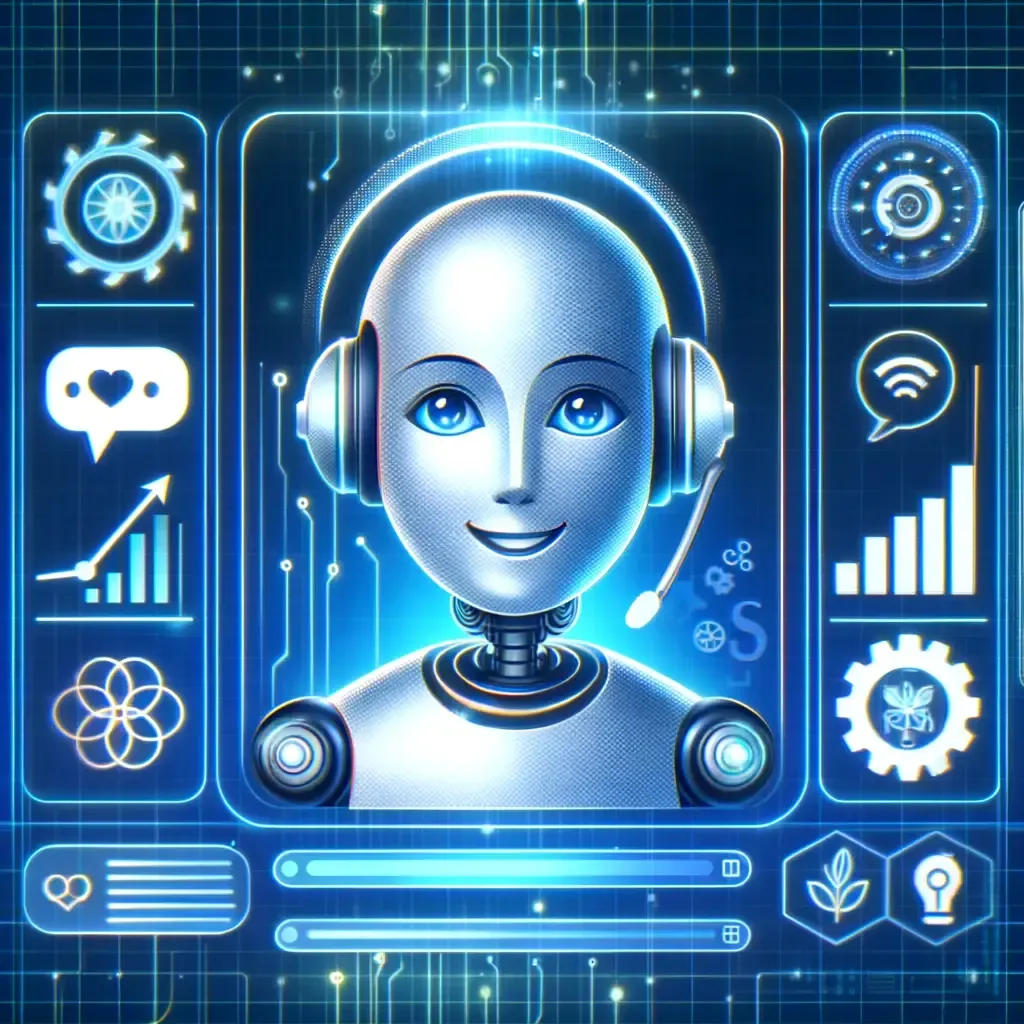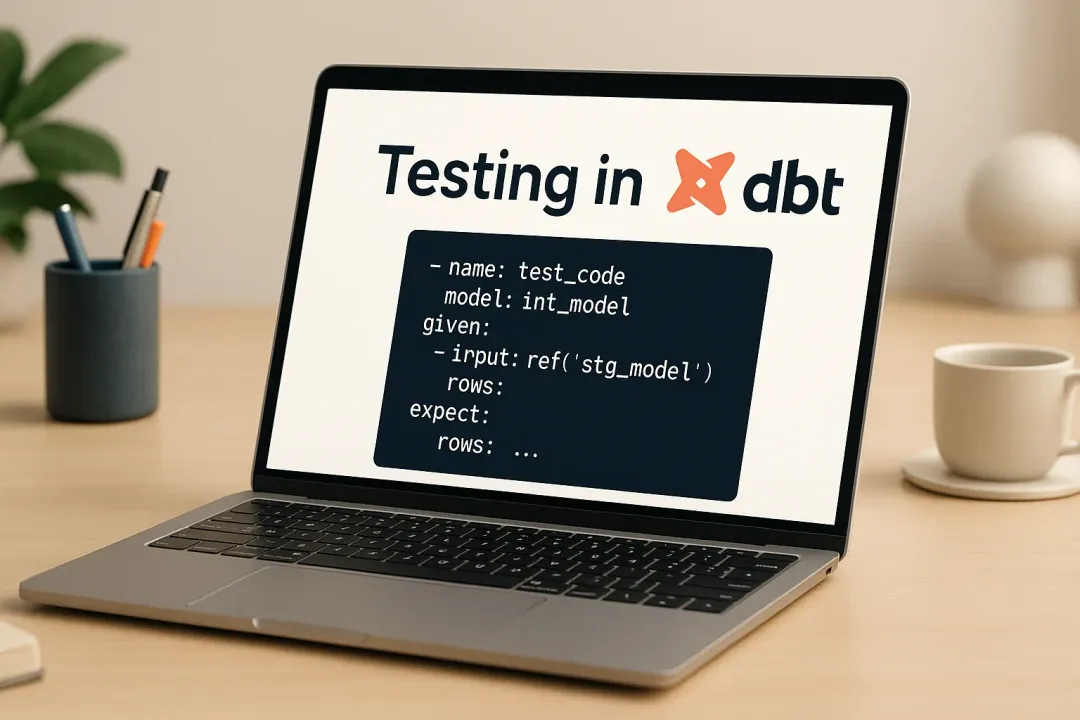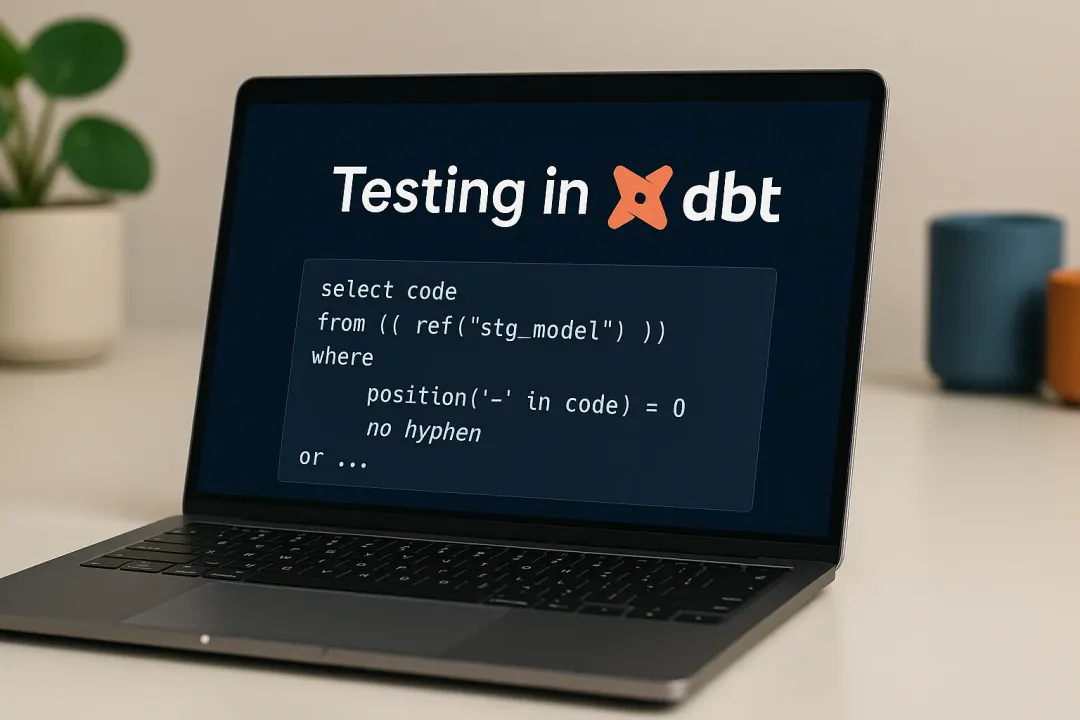
Maria Chojnowska
8 January 2024, 9 min read

What's inside
- AI Coding
- Generative AI
- BYOAI & Shadow AI
- Open Source AI
- AI Risk Hallucination Policy
- AI TRISM
- Intelligent Apps & AI for Personalization
- Quantum AI
- AI Legislation
- Ethical AI
- AI Jobs
- AI-powered Online Search
- AI in Customer Service
- Summary
Before we start, subscribe to our Sunscrapers Highlights for the latest insights and updates if you want to keep up with more content like this.
As we embrace 2024, the realm of artificial intelligence (AI) continues to unfold new chapters of innovation and transformation.
These emerging AI trends are not merely technological advancements but catalysts reshaping industries, economies, and societal norms. Let's navigate through the top 13 AI trends at this change's forefront.
AI Coding
The field of software development is undergoing a radical transformation thanks to the intervention of artificial intelligence. AI is not just automating tasks; it's becoming an indispensable assistant, enhancing the efficiency and quality of code.
Here are the key areas where AI is revolutionizing coding:
Code Completion and Suggestion
Language model-based tools are now adept at predicting and suggesting subsequent lines of code, accelerating the development process. This feature proves invaluable in repetitive coding tasks and while employing familiar patterns and frameworks.
Bug Detection and Correction
Advanced AI algorithms can scrutinize code to detect syntax and logical errors. Beyond detection, these tools suggest corrections and advocate for best coding practices, elevating the overall quality and reliability of the software.
Code Refactoring
AI assists in refactoring code, making it more efficient, readable, and maintainable without altering the underlying functionality. This includes optimizing algorithms, curtailing redundancy, and enhancing code clarity.
Automating Documentation
Large language models can automatically generate and update documentation for existing codebases. This saves valuable time and ensures consistency and accuracy in documentation, a critical aspect of maintainable code.
Learning and Training
AI-powered platforms are excellent resources for budding programmers, offering real-time feedback, coding examples, and detailed explanations of various programming concepts, facilitating a more interactive and efficient learning experience.
Language Translation
AI aids in translating code between programming languages, a feature particularly beneficial during legacy system migrations or when integrating systems built on different technology stacks.
Natural Language to Code Conversion
Developers can now describe functionality in natural language and have AI tools translate these descriptions into working code. This revolutionary feature bridges the gap between idea conception and technical implementation, allowing for a more intuitive development process.
Assistance in Debugging
AI significantly bolsters the debugging process by identifying potential causes of bugs and recommending appropriate fixes. It analyzes code behavior and error logs to provide targeted solutions, reducing the time and effort typically required in debugging.
Code Optimization for Performance
By scrutinizing code for performance bottlenecks, AI suggests and implements optimizations, such as enhanced memory management or parallel processing techniques, thus improving the performance and scalability of applications.
Custom Code Generation
AI can generate custom code templates or scripts for specialized tasks or repetitive coding scenarios. These are tailored to the project's requirements and preferences, streamlining the development process.
Collaborative Coding
AI facilitates a more efficient collaborative coding environment by managing version control, seamlessly merging changes, and resolving conflicts, enhancing team productivity and code quality.
Generative AI
Generative AI is pioneering a new era where machines are not just tools but creators in their own right. This technology utilizes complex algorithms to generate unique content, from realistic images to original music compositions.
It draws from vast datasets to learn patterns and styles, enabling it to produce work indistinguishable from that made by humans. This is not just altering the landscape of creative industries but is also raising important questions about the nature of art and creativity. As these AI systems become more accessible, they promise to democratize artistic creation, allowing more people to express themselves in new ways. Nevertheless, with such power comes the need for ethical considerations and guidelines to ensure responsible use.

An illustration of Generative AI created by OpenAI's DALL-E showcases the harmonious blend of art, design, and technology.
BYOAI & Shadow AI
Bring Your Own AI (BYOAI) and Shadow AI represent a shift towards personalized and often unsanctioned use of AI within organizations.
These trends reflect a growing desire for bespoke AI solutions that cater to specific, sometimes idiosyncratic, user needs. Shadow AI, in particular, poses unique challenges to IT governance, as it may operate outside official channels, but it also highlights the demand for agility and customization in AI services.
Meanwhile, BYOAI fosters a culture of innovation and entrepreneurship, enabling individuals and businesses to build their own AI models from the ground up.
As these trends gain momentum, they underscore the importance of balancing control with creativity in the development of AI.
Open Source AI
The open-source movement in AI embodies a collaborative spirit, driving innovation through shared knowledge. Projects like TensorFlow and PyTorch have become the backbone of AI research and development thanks to their accessibility and community support.
Open-source AI tools lower the barriers to entry, allowing startups and individual developers to contribute to and benefit from cutting-edge research. This collective effort accelerates the pace of AI advancements and promotes transparency and security as a global community scrutinizes the open-source code. The open-source AI trend is a testament to the power of collaboration in solving complex problems and is likely to continue shaping the future of technology.
AI Risk Hallucination Policy
The phenomenon of AI 'hallucinations', where AI systems generate plausible but fictitious information, presents a significant risk in the age of misinformation. To combat this, the development of AI risk hallucination policies is becoming paramount in ensuring the reliability of AI-generated content. These policies are designed to create a framework that identifies and mitigates the risks associated with AI outputs. They are critical in fields like journalism, healthcare, and law enforcement, where the integrity of information is crucial. As AI continues to permeate our information ecosystems, such policies will be essential in safeguarding against the erosion of trust.
AI TRISM
AI TRISM (Triple-sectorism in AI) is an integrative approach that seeks to leverage AI synergistically across the public, private, and non-profit sectors. By aligning the strengths and objectives of each sector, AI TRISM aims to tackle societal challenges more effectively than any one sector could alone. It emphasizes the importance of cross-sector collaboration in addressing complex issues such as climate change, public health, and urban planning. This approach also considers AI's ethical dimensions, advocating for equitable and beneficial solutions for all stakeholders.
Intelligent Apps & AI for Personalization
The proliferation of intelligent apps signifies a leap towards more personalized digital experiences driven by AI's ability to learn and adapt to individual user preferences. These apps integrate AI to refine recommendations, anticipate needs, and streamline interactions, making every digital touchpoint more engaging and intuitive. From e-commerce platforms that suggest products uniquely suited to each shopper to smart home devices that adjust to the rhythms of daily life, intelligent apps are setting a new standard for personalization. As this trend grows, data privacy and user consent concerns become increasingly important, prompting developers and regulators to find a balance between personalization and privacy.
Quantum AI
Quantum AI is an emerging frontier at the intersection of quantum computing and artificial intelligence. This powerful combination can potentially solve computational problems beyond the scope of traditional supercomputers, particularly in optimization, material science, and complex system modeling. Quantum AI could lead to breakthroughs in drug discovery, financial modeling, and climate simulations by processing information in fundamentally new ways. Despite its nascent stage, quantum AI is attracting significant investment and research, suggesting a future where its impact could be transformative.
AI Legislation
AI legislation evolves as policymakers strive to keep pace with rapid technological advancements. Effective regulation is essential to ensure AI is used responsibly, with considerations for ethical implications, data governance, and societal impact. The need for clear legal frameworks around liability and accountability becomes pressing as AI systems become more autonomous. Legislators are also grappling with how to protect individual rights without stifling innovation.
Ethical AI
Ethical AI is a principle that demands attention to the moral implications of artificial intelligence. Ensuring AI systems are developed and deployed ethically is crucial as they become more pervasive. This includes addressing biases in AI algorithms, guaranteeing transparency in AI decision-making, and safeguarding user privacy. The call for ethical AI also considers how AI affects employment and the need to support those whose jobs may be transformed by automation.
AI Jobs
The advent of AI creates new job categories and redefines existing roles, requiring an adaptable and technologically literate workforce.
AI is anticipated to automate routine tasks, freeing humans to focus on complex problem-solving and creative endeavors. This shift necessitates a rethinking of education and training programs to prepare individuals for the jobs of the future.
Moreover, organizations must consider how to reskill and upskill their existing workforce to meet the demands of an AI-driven economy.
• How AI Will Impact the Future of Career?
AI-powered Online Search
AI-powered online search engines transform how we find and interact with information. By leveraging natural language processing and machine learning, search engines are becoming more adept at understanding and predicting user intent. This leads to more relevant and personalized search results, enhancing the user experience.
AI also enables the search for multimedia content, such as images and videos, to become more accurate and context-aware. As the sophistication of AI search tools increases, so does the importance of ensuring they are unbiased and equitable.
AI in Customer Service
AI revolutionizes customer service by providing responsive, personalized, and efficient interactions. Chatbots and virtual assistants powered by AI can handle various customer inquiries, from basic questions to complex issues, around the clock. This improves customer satisfaction and allows businesses to scale their support services efficiently. Additionally, AI in customer service is evolving to include emotional intelligence, enabling more natural and empathetic customer interactions.

An illustration of Generative AI created by OpenAI's DALL-E showcases a futuristic AI interface and a friendly chatbot avatar.
Summary
These 13 trends demonstrate that AI in 2024 is integral to our digital ecosystem, driving innovation and efficiency across diverse domains. As AI becomes increasingly embedded in our daily lives, engaging with it mindfully is imperative, considering the broader implications and ensuring its beneficial integration into society.
Contact Sunscrapers - your trusted tech partner. We specialize in developing cutting-edge solutions tailored to your unique needs. Let's innovate together and turn these AI trends into your competitive advantage.


